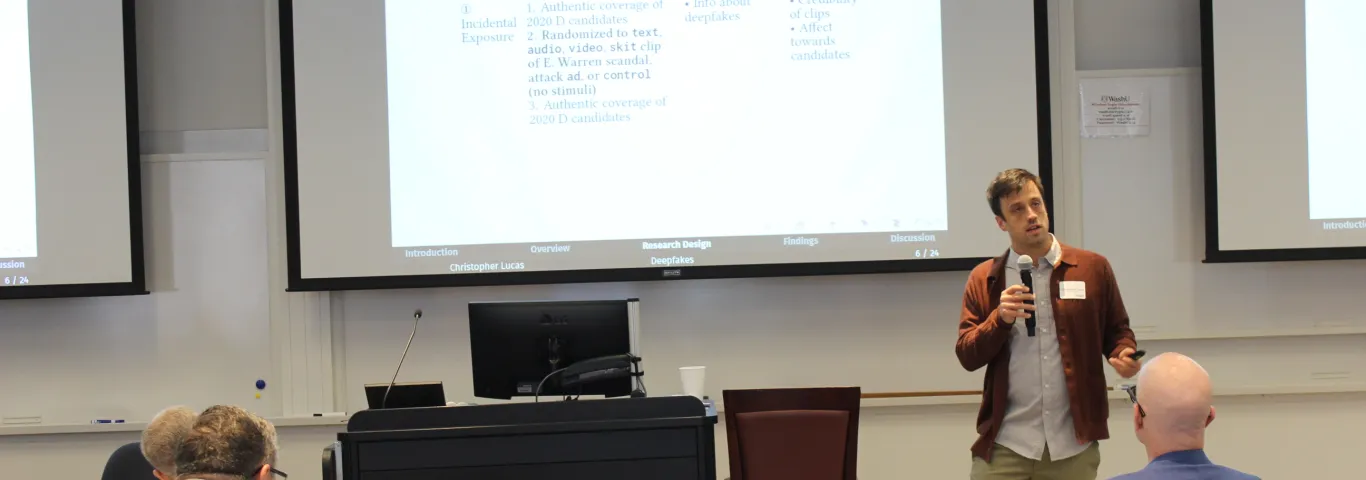
Research

Assistant Professor Lucia Motolinia Publishes Article for London School of Economics
Most voters are generally aware that most politicians are wealthier than they are. But do they know just how big this gap is? In new research covering the United States, Brazil, Chile, and India, Marko Klašnja and Lucia Motolinia find that the richest politicians are far wealthier than voters imagine. And while they determine that voters want politicians to be less wealthy, telling them the truth about politicians’ wealth makes little difference to their attitudes towards their elected representatives.

Completing my PhD at WashU was one of the best things that ever happened to me, both professionally and personally. Mostly, it was about the people—the colleagues and faculty who supported me—and the environment that helped me discover and shape my identity as a researcher.
― Michelle Torres Assistant Professor, Department of Political Science, UCLA